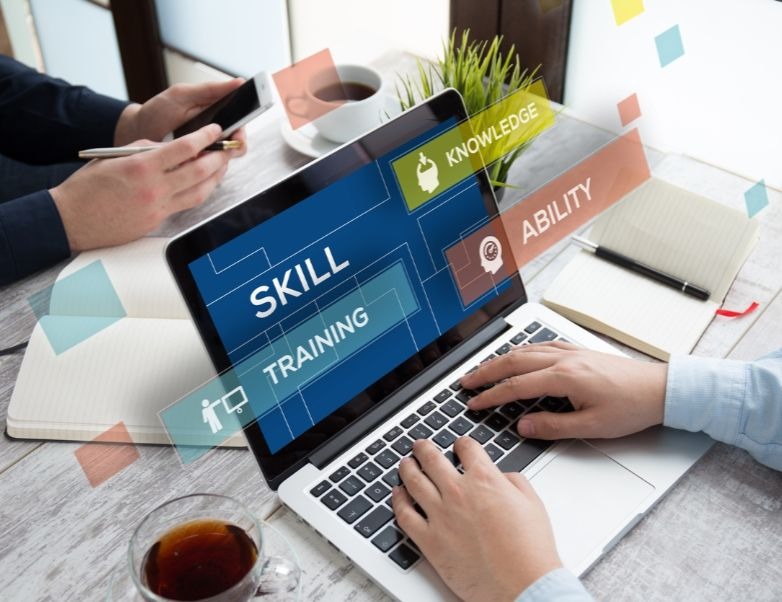Sales LMS? What You Want Is a Sales Readiness Solution

As sales enablement has grown in popularity (over 300% the past five years!), it’s only natural that the need for tools to support the function has grown with it. With training and onboarding among the most common responsibilities of enablement roles, the natural question might be, “Is there a sales LMS out there to help?”
The answer is yes and no. There are tools available to support sales training, but you usually won’t hear them described as a “sales LMS” (learning management system). One main reason: while traditional LMS apps are commonly used for broad corporate training, they aren’t designed for the unique learning needs of salespeople.
It’s why more companies now invest in a sales enablement platform to address sales learning requirements – or more specifically, a readiness solution.
Choosing a Readiness Solution for Your “Sales LMS”
SiriusDecisions reported earlier this year: “Not to be confused with robust learning management systems (LMS), which focus on scheduling and compliance or standalone learning authoring and delivery, sales learning and coaching technology solutions primarily address the unique and complex needs of the selling environment.”
Typically, the primary goal of a corporate LMS is to use eLearning to ensure delivery and completion of training to a large audience. A sales readiness solution will certainly include elements of the same functionality, but with a focus shift from completion (“Did they do the training?”) to completion and readiness (“Can they demonstrate mastery of the material in front of a buyer, when it matters most?”)
To that end, assessment is a core tenet of sales readiness products, often in the form of video coaching technology. These tools enable managers to assign coaching activities (example: “Show me your 60-second elevator pitch?”) for sellers to record replies to via video.
The video submissions can then be reviewed, scored, ranked and saved, with feedback shared to improve the rep’s performance. The result is a better understanding of which salespeople possess the knowledge and skills required to excel, and which ones have greater message consistency across the team.
There’s also a lot of flexibility in how these coaching tools can be used:
- One-off assessments (“How would you handle this buyer objection?”)
- Formal certifications (as part of a structured eLearning course)
- Peer learning assets (saving the best video examples to others to learn from)
- Practice environments for reps to master their pitches
And so on. More advanced products can even provide some automatic scoring and feedback using AI (such as Brainshark’s Machine Analysis engine.)
More key features of sales readiness solutions
In Forrester Research’s Now Tech: Sales Readiness Tools report from Q2 2018, the firm states that companies “can use sales readiness tools to overcome the limitations of event-based sales training, engage with learners in the formats they prefer, and utilize analytics to drive better commercial outcomes.”
To that end, other important functionality of readiness tools can include:
- Easy creation and updating of learning content: Most of the time, content that’s purchased off-the-shelf (or that requires an instructional designer to produce) won’t work for a “sales LMS.” Sales readiness calls for more speed and flexibility.
Readiness solutions should provide a simpler way for anyone – from enablement managers to a company’s subject matter experts – to produce effective learning content quickly and keep that content continuously up-to-date as things change (such as products, messaging, etc.). Forrester notably puts an emphasis on video/module-based learning for sales.
- Flexible access and CRM integration: Another key component of a sales readiness solution is an increased focus on preparing sellers where, when and how they work. That means a more seamless mobile experience for reps on-the-go, and of course, deeper integrations with CRM systems like Salesforce.
- Progress tracking across multiple teams: Perhaps the most important function of a readiness tool is to answer the question, “Are your reps ready?” Video coaching assessments provide a window into the readiness of each of your salespeople. Readiness dashboards can further provide a powerful snapshot of the learning status of different teams.
For example, field sellers may have different training requirements than business development reps or sales engineers. Sales readiness solutions are equipped to track the progress of these various roles across your entire sales ecosystem.
Companies in the market for a sales LMS are really looking for a sales readiness tool – whether they realize it or not. For more information on sales readiness, check out this Sales Readiness Technology Buyer’s Guide and browse the Brainshark resource center.

